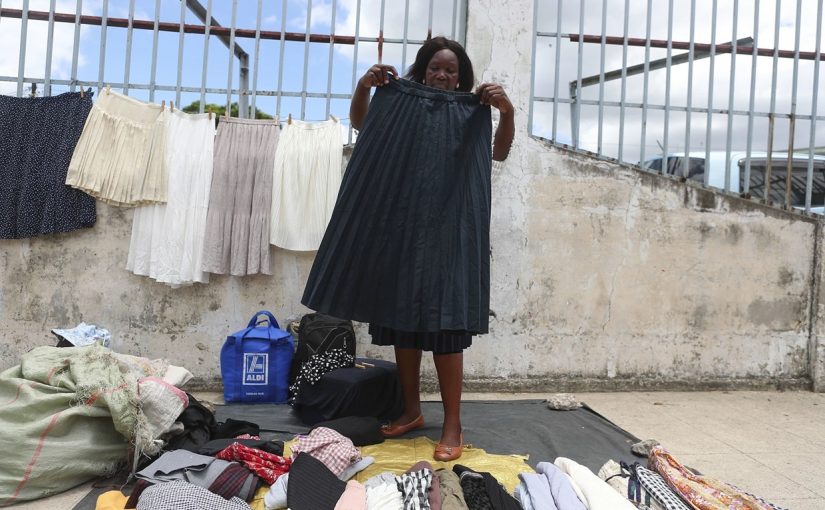Mozambique: Government wants 30% cut in foreign medicine dependence by 2030
Mozambique: Second-hand clothing employs 200,000 – study

File photo: Lusa
The second-hand clothing business represents a “survival alternative” in Mozambique, ensuring “more than 200,000 formal and informal jobs” and supports one million people, according to a study.
The report on second-hand clothing in Mozambique, carried out by Consulting For Africa and Abalon Capital Limitada, commissioned by ADPP (Ajuda de Desenvolvimento de Povo para Povo) Mozambique, concluded that the activity “plays a vital role” in the African country’s “daily life and economy”, and is even a “catalyst for economic growth”.
The survey identifies that the activity represents $650 (€598) per month “on average in earnings for well-established sellers,” which compares with the national minimum wage of $90 (€83). It also says that it provides “basic clothing needs” for at least 80% of the population and represents $35 million (€32.2 million) in taxes on the import of these garments annually.
The document said that in Mozambique, “all the main markets have large concentrations of second-hand clothes sellers, particularly women and young people.” Along with food sales, second-hand clothes are an anchor activity in urban markets.
“We estimate that over the last five years, Mozambique has imported around 36,750 tonnes/year, and that demand grew by 3.5% last year. Our analysis suggests that one tonne of second-hand clothing imports supports around 7.8 jobs, both directly and indirectly,” says the study.
A market that “provides cheap, diverse and accessible clothing for millions of people living in poverty”, it also emphasises.
The document recalls that Mozambique “is one of the poorest countries in the world, ranking 183rd out of 191 countries on the United Nations Human Development Index”, with around 25% of the population unemployed, so the findings on this activity “underline the importance of the industry” of second-hand clothing “as a crucial source of basic clothing, employment and public finances”.
“Any negative disruption could, therefore, have devastating consequences for a population already struggling with widespread poverty,” warns the report, suggesting that the need to “revitalise Africa’s textile sector is more complex than is often recognised”.
“Without substantial investment to increase local production and develop a competitive edge in garment manufacturing – particularly when competing with countries such as China, India and Bangladesh – significant import substitution in the garment sector seems unlikely,” it added.
“Rather than viewing the second-hand clothing trade and local textile industries as opposing forces,” the report “concludes that both sectors can thrive together.”
“Specifically for Mozambique, our forecasts suggest that second-hand clothing will continue to be the main source of affordable clothing without any significant improvement in Gross Domestic Product growth over the next decade. Instead of targeting second-hand clothing imports, African nations should explore more pragmatic solutions, such as strategic collaborations between countries to strengthen areas of competitive advantage,” argues Brian Mangwiro of Abalon Capital, which carried out the study.
The study was commissioned by ADPP Mozambique, a non-governmental organisation that has been working in the country since 1982 in the areas of quality education, health and well-being, sustainable agriculture and the environment.
ADPP employs around 3,300 people and implements more than 50 projects in all the country’s provinces, “benefiting around 8.2 million Mozambicans every year”.












Leave a Reply
Be the First to Comment!
You must be logged in to post a comment.
You must be logged in to post a comment.